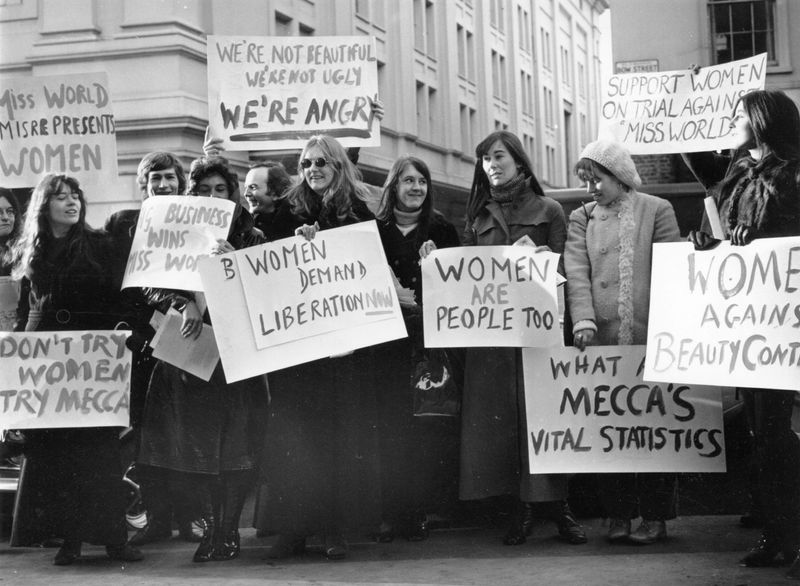In today’s world, misconceptions abound about various generations, and Baby Boomers often find themselves at the center of many.
While stereotypes may arise from certain visible trends, they rarely capture the full picture.
This article aims to debunk 17 common myths associated with Boomers, presenting a nuanced view of this diverse generation.
1. They’re Not All Tech-Illiterate
The digital age often paints Boomers as tech-illiterate, but this stereotype is far from accurate. Many Boomers have not only adapted to new technologies but have also thrived, embracing smartphones, social media, and other digital innovations. They engage in online banking, shop through e-commerce platforms, and even participate in virtual meetings.
A significant number of them have been involved in the tech industry since its infancy, contributing to the very innovations we use today. Their adaptability and willingness to learn demonstrate that tech skills are not bound by age.
So, while they might occasionally need help with the latest app, the idea that all Boomers are clueless about technology is misleading.
2. Many Were Activists Long Before It Was Trendy
Activism didn’t just start with Millennials; Boomers have been demanding change for decades. From the Civil Rights Movement to protests against the Vietnam War, Boomers were on the front lines, advocating for justice and equality. Their commitment to social change set the stage for the activism we see today.
These experiences have shaped their perspectives and contributed to ongoing advocacy efforts, including support for current social justice movements. Their legacy of activism underscores a deep-seated belief in fairness and human rights.
Thus, the notion that Boomers were never part of ‘the fight’ overlooks their significant contributions to society’s progress.
3. They Don’t All Cling to Outdated Values
The idea that Boomers are stuck in their ways and refuse to evolve with the times is an oversimplification. Many Boomers have embraced contemporary values, supporting inclusivity, diversity, and progressive change. This openness can be seen in their support for modern art, music, and literature, which reflect today’s societal shifts.
Interacting with younger generations, they often engage in meaningful conversations about current issues, adapting their viewpoints along the way. Their ability to reflect and grow with societal changes highlights their dynamic nature.
Therefore, labeling all Boomers as resistant to change doesn’t acknowledge the diversity of their beliefs and values.
4. They’ve Raised Progressive, Open-Minded Children
One might assume Boomers impose their views on their children, but many have nurtured open-minded, progressive offspring. These Boomers encourage their children to explore diverse perspectives, fostering environments where acceptance and empathy thrive. They teach values of respect, equality, and kindness.
Such upbringing has led to children who actively support LGBTQ+ rights, gender equality, and other progressive causes. Boomers have played a crucial role in shaping a generation geared towards inclusivity and understanding.
Thus, the stereotype that Boomers are solely responsible for perpetuating outdated norms doesn’t reflect the reality for many families.
5. They Adapted to the Internet and Made Facebook What It Is
The digital landscape was transformed significantly by Boomers, particularly on platforms like Facebook. Initially designed for younger users, Facebook saw a surge in popularity among Boomers, who used it to reconnect with old friends and stay in touch with family. Their engagement has significantly shaped the platform’s evolution.
Boomers frequently share content, contribute to discussions, and even participate in online communities. They value the connectivity that social media provides, making it an integral part of their daily lives.
Far from being out of touch, Boomers have embraced the internet, proving their adaptability and influence in the digital realm.
6. They’ve Worked Hard—and Are Still Working
The notion that all Boomers are retired and inactive doesn’t hold true for many. In reality, a large number remain actively engaged in the workforce, driven by passion, necessity, or both. Boomers have contributed significantly to the economy, building businesses and innovating in various fields.
Many continue to pursue new ventures, offering mentorship and guidance to younger colleagues. Their work ethic is a testament to their resilience and commitment to personal and professional growth.
Thus, the stereotype that Boomers have stopped contributing economically overlooks their ongoing dedication and influence in today’s workforce.
7. They’re Not Automatically Out of Touch with Younger Generations
Assuming Boomers are out of touch with younger generations simplifies a complex relationship. Many Boomers actively seek to understand and connect with younger people, valuing their perspectives and insights.
Through shared interests, hobbies, or professional collaborations, Boomers often bridge generational gaps, fostering mutual respect and learning. These interactions lead to enriched relationships and cooperative exchanges of ideas.
Therefore, painting all Boomers as disconnected from younger generations fails to recognize the meaningful connections that many actively cultivate.
8. Plenty of Them Support LGBTQ+ Rights Wholeheartedly
Contrary to popular belief, many Boomers are staunch supporters of LGBTQ+ rights. Having witnessed social change over the decades, they have evolved alongside these movements, advocating for equality and acceptance.
Boomers have contributed to legislative progress and have fostered inclusive environments in their communities and families. Their support is often grounded in personal connections with LGBTQ+ individuals, leading to sincere allyship.
The stereotype that Boomers are unanimously against LGBTQ+ rights ignores the significant strides they have made as allies and advocates for this community.
9. They Know How to Hustle—Without Hashtags
The art of hustling transcends generations, and Boomers are no exception. Many have perfected the skill of entrepreneurship long before hashtags and social media trends became prevalent. They excel in crafting businesses, whether through artisanal crafts, local ventures, or innovative solutions.
Their success often lies in personal interactions, dedication, and a deep understanding of their craft. These traits enable them to thrive in competitive environments, utilizing traditional methods to achieve their goals.
Thus, dismissing Boomers as unable to hustle overlooks their resourcefulness and entrepreneurial spirit, which continue to flourish without digital validation.
10. Many Embrace Therapy, Growth, and Emotional Awareness
Boomers may be seen as emotionally reserved, but many have embraced personal growth through therapy and mindfulness practices. Understanding the importance of mental health, they actively seek self-improvement and emotional awareness.
This openness to change has allowed them to break generational cycles, fostering healthier relationships with themselves and others. Their journey towards emotional intelligence is a testament to their adaptability and willingness to evolve.
Therefore, the idea that Boomers are emotionally closed-off is a misconception, as many prioritize their mental well-being and growth.
11. They Don’t All Hoard Wealth or Block Progress
The stereotype of Boomers as wealth hoarders resistant to change is not universally applicable. Many actively engage in community service, philanthropy, and sustainable practices. They strive to leave a positive impact and support initiatives that benefit future generations.
Boomers contribute to social progress through volunteering, mentoring, and sharing resources. Their generosity and forward-thinking nature counter the notion that they block progress.
Thus, not all Boomers fit the mold of being financially selfish; rather, many are committed to fostering a better world.
12. They’re Not Clueless About Climate Change
While some may believe Boomers ignore climate change, many have been environmental advocates for years. They participate in movements, support policies, and educate others about sustainable practices. Their commitment to environmental causes is rooted in a desire to protect the planet for future generations.
Through recycling initiatives, renewable energy adoption, and conservation efforts, Boomers contribute significantly to the fight against climate change. Their involvement in environmental advocacy often predates the current global discourse.
Therefore, the belief that Boomers are indifferent to climate issues overlooks their active participation and dedication to environmental preservation.
13. Plenty of Them Grew Up Poor or Struggling—Just Like Gen Z
Economic hardship is a reality that many Boomers faced, contrary to the assumption that they all grew up in comfort. Similar to Gen Z, numerous Boomers experienced financial difficulties, shaping their resilience and resourcefulness.
These experiences have influenced their values, driving them to seek stability and support for others facing similar challenges. Understanding this background provides insight into their perspectives on economic and social issues.
Thus, the notion that all Boomers come from privileged backgrounds disregards the diversity of their experiences and the commonalities they share with younger generations.
14. They Helped Shape Modern Feminism
Boomer women played pivotal roles in the feminist movements of the 1960s and 70s, challenging societal norms and advocating for gender equality. Their efforts paved the way for future generations, influencing policies and perceptions about women’s rights.
From securing reproductive rights to fighting for workplace equality, these women have been instrumental in advancing feminist causes. Their courage and determination have inspired continued progress in gender equality.
Therefore, dismissing their contributions to feminism overlooks the foundational work they accomplished, which remains impactful today.
15. Not All of Them Push Traditional Family Roles
The perception that all Boomers adhere to traditional family roles fails to account for the diversity within this generation. Many couples have embraced egalitarian partnerships, redefining roles to encourage shared responsibilities.
These relationships often challenge traditional norms, emphasizing collaboration and mutual support. Such dynamics reflect a broader cultural shift towards equality, which many Boomers have actively pursued.
Thus, the stereotype that all Boomers impose outdated family structures overlooks the progressive changes they’ve adopted in their personal lives.
16. They Aren’t Responsible for Every Broken System
Assigning blame to Boomers for all societal issues simplifies complex systems involving multiple factors and generations. Many Boomers advocate for reforms and improvements, recognizing the need for change in various areas.
Their involvement in community discussions, policy advocacy, and grassroots movements demonstrates a commitment to addressing systemic problems. They often collaborate with younger generations to drive meaningful change.
Therefore, attributing all societal failures to Boomers neglects their efforts to rectify and improve systems they did not solely create or control.
17. Some of the Most Emotionally Intelligent People You’ll Meet Are Boomers
Emotional intelligence is not confined to age, and many Boomers exemplify this through their empathy, understanding, and communication skills. Having navigated various life stages, they offer wisdom and insight, fostering compassion and support in their interactions.
Participating in therapy or support groups, Boomers often display a high degree of self-awareness and emotional maturity. These qualities enable them to build meaningful connections and provide guidance to others.
Thus, the stereotype that Boomers lack emotional intelligence is unfounded, as they continue to enrich relationships with their emotional depth and awareness.


















